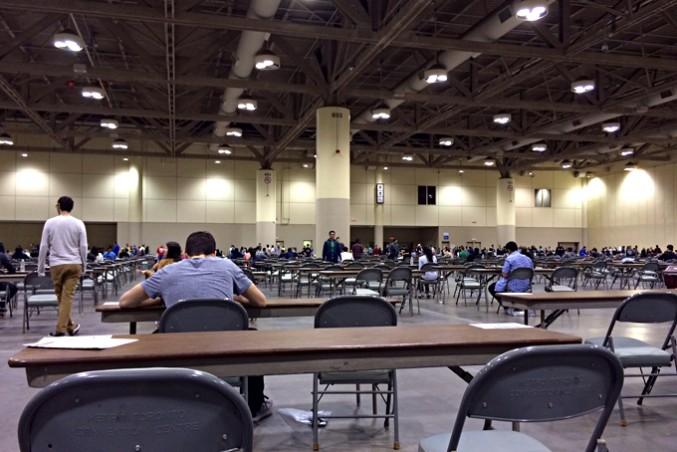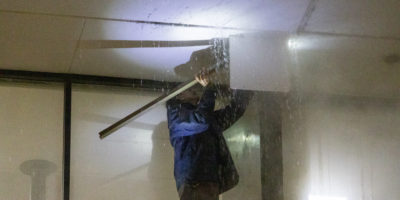By Sierra Bein
For most students, midterm season is a stressful time in the semester, but for one finance class, a midterm became more of a burden than anyone could have ever expected.
Students in professor Edward Blinder’s FIN300 class got a surprise when the midterm they sat down to write on Oct. 23 had the exact same questions as a practice exam (a copy of the 2013 final exam) that had been distributed as a study tool for other sections earlier that month. Once Blinder realized what had happened, he gave his class a choice: either rewrite the midterm or have the final exam reweighted so it’s worth 70 per cent of their final marks.
The Eyeopener made multiple attempts at contacting Blinder. He had not responded by the time of publication.
“When a course like FIN300 is run there is a standard practice exam that is distributed to all sections,” said FIN300 professor Lelah Samarbakhsh. “It was the decision of the course co-ordinator as to what practice exam to share.” Her section is unaffected by the mix-up.
Course co-ordinator Yi Feng could not be reached for comment.
Some students aren’t happy with the choice they have to make about their grades and think the whole situation could have, and should have, been avoided.
“We’re kind of mad there’s no communication between the teachers,” FIN300 student Carleton Cartmill said. “The teachers should be asking the faculty about passing out these past exams. There needs to be a policy in place where they have to use new exams.”
Cartmill said it’s common for business students in different classes to study together, and although he didn’t study off the practice exam, some of his classmates did.
“I heard of a couple people who managed to get close to 100 per cent because they actually remembered all the questions because they studied pretty hard,” Cartmill said. “I didn’t take too much into account … one morning, I just read an email from my professor saying the exam was compromised and they can’t use the marks.”
Finance school chair Allen Goss said the school tried to find the most fair option for students.
“I am working with the course co-ordinator and the instructor to accommodate students by offering various exam dates to rewrite the midterm,” Goss said in an email.
The rewrite is currently scheduled for Nov. 15.
“I understand that some students in the affected section may be frustrated. On behalf of the department I apologize for any inconvenience that has been caused. However, I hope all students will agree that the marks on the compromised test cannot be allowed to stand.”
Ryerson President Sheldon Levy said that there are no official rules on reusing exams or how to deal with the aftermath of a mistake like this.
“There is no formal policy on reusing exams at [Ryerson’s] senate,” Levy said. “Maybe there should be, but at the moment there isn’t.” Senate policy 145, the undergraduate course management policy, is the framework for academic conduct – including exam procedures.
This policy is up for review this year.
John Turtle, Ryerson’s secretary of senate, monitors and reviews senate policies. He said that each department is individually responsible for how it handles tests and exams, including what happens if a mistake occurs during the administration of one.
“Often they’d engage the chair, the director and again, often experienced faculty members that have been through something similar and use our institutional memory for the best way to do it,” Turtle said.
Because exams can be radically different depending on the course, departments also deal with any issues on their own. Departments do not have to consult the senate due to the lack of a formal policy, so the university doesn’t know how many times this may have happened in the past.
“I think it’s an unknown thing,” said Turtle. “People aren’t obligated to notify us, so there’s really no way of tracking it in a systematic way.”
“The main issue students are having is that we’re paying $10,000 a year for a properly working education system, so even when the faculty messes up and we’re penalized for it it’s kind of ridiculous,” Cartmill said. “There needs to be some sort of new policies set in place to stop this from happening again in the future [and to] make sure the faculty is corresponding and keeping up with what’s going on.”












Leave a Reply